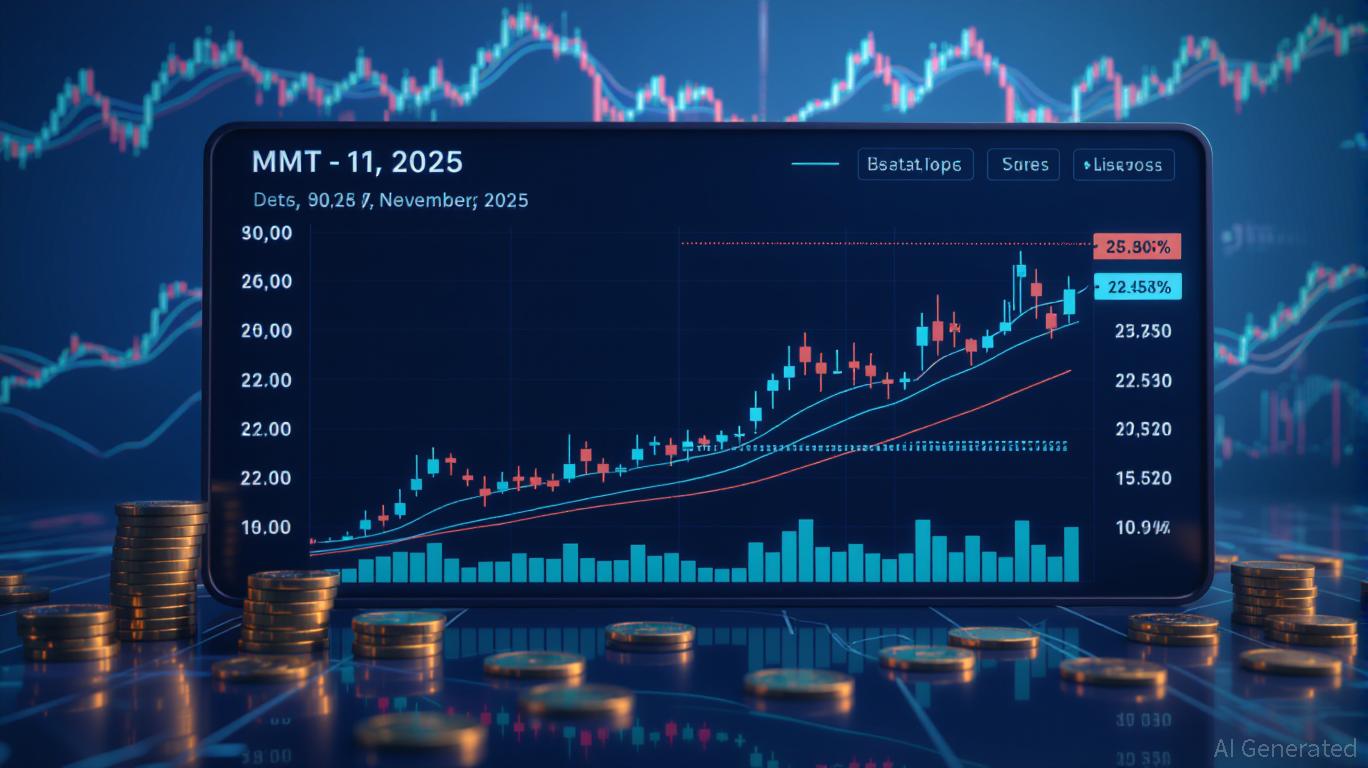Ethereum Updates: Major Whale Amasses $140M in ETH Despite ETF Withdrawals, Igniting Market Discussion
- Ethereum whale "66kETHBorrow" deposits $140.2M in ETH into Binance and Aave V3, amassing 385,718 ETH ($1.33B) since November. - Whale's leveraged strategy includes $120M USDT borrowing from Aave, signaling high-conviction bets on ETH's price recovery amid market volatility. - Analysts debate risks vs. resilience: Some praise "4D chess" tactics, others warn of "speedrunning liquidation mode" due to aggressive leverage. - Whale's actions contrast with $183.77M ETF outflows, creating uncertainty as accumula
A prominent

Known as "66kETHBorrow," the whale has accumulated 385,718 ETH (worth $1.33 billion) since early November,
Experts are split on the significance of these moves. Some interpret the strategy as a confident wager on Ethereum’s long-term strength, with crypto analyst Joe @SelfSuccessSaga describing it as “4D chess”—alluding to highly sophisticated trading strategies. Others highlight the dangers of heavy leverage, joking that the whale is “speedrunning liquidation mode.” These actions stand in contrast to recent ETF outflows, which
The market’s response to the whale’s activity has been mixed. While ETH’s price has steadied near $3,480, some traders believe ongoing accumulation could trigger a short-term price surge. On-chain data from CryptoQuant indicates
The whale’s upcoming actions may determine if this accumulation sparks a broader market recovery. Should the $120 million USDT recently moved to Binance be used to buy more ETH,
Disclaimer: The content of this article solely reflects the author's opinion and does not represent the platform in any capacity. This article is not intended to serve as a reference for making investment decisions.
You may also like
Solana News Today: "Solana Treasury Allocates Billions in Staking, Offering 7.7% Returns Amid Ongoing Market Skepticism About Crypto Rebound"
- Upexi , a Nasdaq-listed Solana treasury firm, reported $66.7M net income in Q1 2026, driven by $78M in unrealized gains from its 2.18M SOL holdings. - The Solana treasury sector now holds 24.2M SOL ($3.44B), with Upexi ranking fourth and staking yields averaging 7.7% as a corporate asset class. - Market volatility triggered defensive moves like Upexi's $50M share buyback, while its stock trades at 0.68x NAV amid broader crypto skepticism. - Solana's on-chain activity outpaces Ethereum , with TVL reaching

COAI's Significant Price Decline: The Result of Leadership Instability, Ongoing Legal Issues, and Ambiguous Regulatory Environment
- COAI Index fell 88% YTD in 2025, driven by AI/crypto AI sector selloff amid governance failures and regulatory uncertainty. - C3.ai's leadership crisis and unresolved lawsuit eroded investor trust, compounding COAI's decline as index cornerstone. - Vague CLARITY Act left AI-based crypto projects in legal gray zones, triggering risk-off trading toward established tech stocks. - C3.ai's $116.8M Q1 loss and sector-wide weakness highlighted structural risks despite 21% revenue growth. - Analysts debate if CO

MMT Value Forecast and Investor Outlook for November 2025: Evaluating Reliability During Economic Changes
- MMT token surged 1,300% in Nov 2025 due to Binance listings, airdrops, and institutional investments. - 1607 Capital increased MMT-linked fund stake by 84.7%, but dividend sustainability remains unclear. - Fed policy and missing inflation data (due to 2025 government shutdown) cloud macroeconomic alignment. - MMT's volatility ($4.40 to $2.54) highlights speculative nature despite structural catalysts. - Long-term credibility depends on macroeconomic clarity and Fed policy shifts, not just exchange-driven

LUNA Declines by 0.62% as Ongoing Yearly Downtrend Persists in Uncertain Market Conditions
- LUNA fell 0.62% on Nov 16, 2025, continuing an 80.61% annual decline amid crypto market volatility. - The drop reflects macroeconomic pressures, regulatory scrutiny, and waning investor risk appetite in digital assets. - Technical analysis shows broken support levels and weak buying pressure, indicating a prolonged bearish phase. - Backtesting reveals sharp declines often trigger panic selling and sector-wide market erosion, compounding losses. - Prolonged depreciation risks eroding investor confidence u